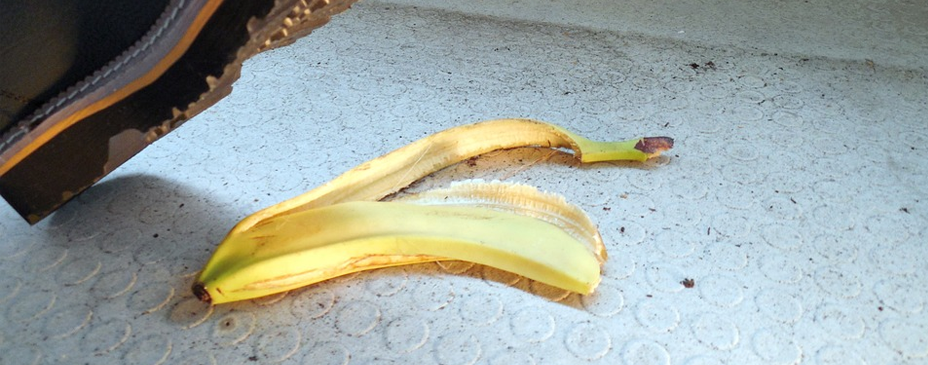Don’t cry over spilt … liquid, unless it’s a casual act of negligence

The term “casual act of negligence” is often used to describe the alleged liability that flows after a slip and fall even after a cleaner inspects an area. Recent Court of Appeal decisions have provided some guidance on how the court examines such allegations, providing occupiers and cleaners of commercial premises with some certainty when dealing with similar cases.
Cleaning mishap cases have been well-reported. Significantly, Strong v Woolworths Ltd t/as Big W (Strong) found that a reasonable system of cleaning and inspection for a common mall area of the shopping centre was no more than 20 minutes (the industry standard). In Strong, the incident area had not been inspected for 4.5 hours between when the sidewalk sales area was set up for trading and when the plaintiff slipped. The High Court found that Woolworths had breached its duty of care for failing to have an adequate cleaning system in place.
In 2017, the Court of Appeal handed down its decision in Woolworths Ltd v McQuillan (McQuillan), which dealt with an allegation that Woolworths workers were casually negligent in failing to detect a grape that was on the floor. The plaintiff in this case slipped on a grape just 6 minutes after the supermarket opened. The grapes were displayed at the front of the supermarket and the plaintiff slipped and fell on a grape in the middle of the produce aisle. The Court of Appeal reviewed the CCTV footage and could see no positive evidence of when the grape fell onto the floor.
There was no serious dispute that the Woolworths system of inspection was reasonable. It was asserted that during the various inspections before the incident, the Woolworths staff must have missed the grape on the floor, making Woolworths liable for a casual act of negligence.
The Court of Appeal found in favour of Woolworths, stating that:
…keeping a proper lookout in accordance with instructions to maintain vigilance for hazards on the floor, such as grapes, does not mean a perfect lookout. It can be accepted that a visual scan of the entire floor by staff as they go about their busy duties may be impeded by a number of matters, such as, physical objects, or the nature of the other duties being performed. That does not mean that staff have not kept a proper lookout.
Recently, the Court of Appeal again grappled with an allegation that a cleaner was liable for a casual act of negligence in Argo Managing Agency Ltd v Al Kammessy. The incident occurred when the plaintiff slipped on water in a common mall area of a Westfield Shopping Centre in Liverpool, New South Wales. Westfield had engaged contracted cleaners at the premises.
CCTV footage was tendered, which showed that 9 minutes before the fall, an employee of the contracted cleaning company conducted her inspection of the incident site twice. The employee did not observe water in the vicinity of the inspected area. A second cleaner passed the area a minute before the plaintiff’s fall. It was not in dispute that the CCTV footage did not clearly show water on the floor before the fall.
Similar to the decision in McQuillan, the Court of Appeal found that a failure to detect a particular hazard did not necessarily involve a breach of duty. The standard to be attained was that to be expected of a cleaner discharging their duties of inspection with reasonable diligence and care.
The Court of Appeal considered the contract between Westfield and its contract cleaners. The contract required the cleaner to inspect “common malls” every 20 minutes. The contractual requirement cannot be understood to require the cleaners to scrutinise separately every square metre of an area during the course of each 20-minute rotation, especially taking into account their responsibility for performing other duties, such as removing rubbish and attending to clean-ups.
When there is no clear evidence of when a spillage occurs, it is no longer enough for a plaintiff to assert that a cleaner’s rotation through an incident site prior to a slip and fall amounts to a casual act of negligence by failing to detect the spillage. The cases set out above establish the following:
- The industry standard (and the standard accepted by Strong) is for common mall areas of shopping centres to be inspected at no less than 20-minute intervals.
- Practitioners should exercise caution when trying to interpret CCTV footage beyond simply stating what the footage actually shows.
- When inspecting and cleaning a floor, a cleaner is only required to discharge their duties with reasonable diligence and care.
- A cleaner’s inspection of a floor does not need to be perfect. An inspection of a floor by busy cleaners may be impeded by a number of matters, including physical objects of the nature of the other duties being performed.
This is an excerpt from an article by Summer Foley, SPARKE HELMORE.
It appears in Australian Civil Liability Newsletter vol 15 no 6. To view the full article on Lexis Advance, click here. To subscribe to Internet Law Bulletin, email or call us on 1800 772 772.
 LexisNexis
LexisNexis